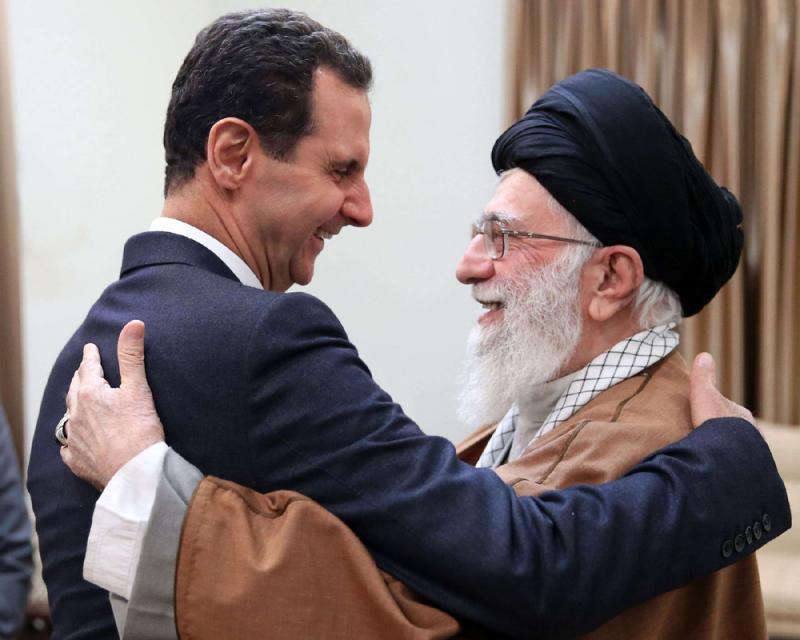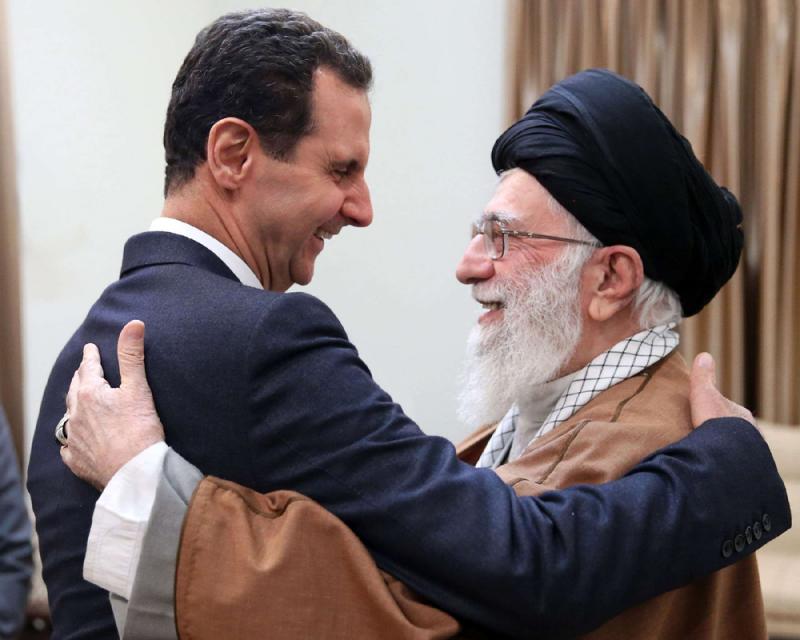Iran is on the way out from Syria
About this time eight years ago, the people’s revolution in Syria broke out. It has become clear since then that the world has conspired against the Syrians, including the US administration under Barack Obama, whose first and last concern was appeasing Iran.
Obama’s administration had no goal besides reaching an agreement with Iran on its nuclear programme. For years, dealing with this programme constituted the backbone of US foreign policy in the region and Obama considered the revolt of millions of Syrians against injustice just a detail.
Since its beginning in March 2011, the Syrian revolution has gone through several stages. It started out as a peaceful revolt and turned into an armed revolution. Then came the episode of the rise of the terror of the Islamic State with the complicity of both the Syrian and Iranian regimes, followed by Russia’s direct intervention in September 2015.
The only constant in eight years of turmoil was Iran’s role, which was intimately connected with Syrian President Bashar Assad, a role that remains best expressed by the direct involvement of Hezbollah and its Lebanese elements in the war on the Syrian people.
It is not known why there is this insistence on the part of Iran to have a foothold in Syria and why it persists in investing in a project of this kind when everybody knows it will not succeed.
Does Iran believe that the most important achievement of the revolution that toppled the shah in 1979 was the establishment of Hezbollah in Lebanon? At some point in 1982, Hezbollah took over the role of the Palestinian organisations in Lebanon. Does Iran believe that its exit from Syria will affect the future of Hezbollah in Lebanon?
There is no doubt that Hezbollah, which is just another brigade in Iran’s Islamic Revolutionary Guard Corps (IRGC), is a great Iranian achievement, indeed an exceptional one. Iran is using the party in Lebanon and outside Lebanon. It is one of its essential tools in the region. It has uses in Syria and Iraq and is active in Yemen and even in Bahrain.
All that can be said in this regard is that Hezbollah played a key role in filling the vacuum in Lebanon created by the Syrian military and security withdrawal in 2005 after the assassination of former Lebanese Prime Minister Rafik Hariri. We now know who was behind it, who planned it, who carried it out and who covered it up.
After the indictment issued by the Special Tribunal for Lebanon, there are no more secrets in the affair. Everything is clear and what is obvious is the complicity between the Syrian and Iranian regimes in everything that goes on in the region.
This largely explains the organic relationship between the IRGC and Assad and that special relationship between the head of the Syrian regime and Hezbollah.
What is also true, as the conflict drags into its ninth year, is that the Iranian role in Syria is shaky after the divergence between the Iranian and the Russian views on Assad’s future. While Iran considers its future presence in Syria linked to a certain person, Russia is betting on Syria as a country and on what remains of its state institutions, especially the army.
Russia recognises that there is no future for Assad and his regime. This explains Moscow’s insistence on a new constitution and on the possibility of establishing an understanding with the United States, Arab countries, Israel and Turkey on the broad outlines of the post-Assad era.
It is also obvious that the head of the Syrian regime has begun to realise his days in Damascus are numbered. If that were not the case, he would not have gone to Tehran behind the back of Moscow and would not have signed agreements with the Iranians and their companies concerning the reconstruction of Syria.
You must be living on another planet to believe for one moment that Iran, which is besieged by US sanctions, will be able to participate in the reconstruction of Syria.
Let us, for argument’s sake, suppose there is a programme for Syrian reconstruction at a cost that can reach about $500 billion. Where will the money come from? Is there anyone willing to spend money in Syria so Iranian companies can undertake reconstruction? Who is ready to spend billions of dollars in Syria for the benefit of Iranian companies affiliated mostly with the IRGC?
Logic says the ninth year of the Syrian revolution is going to be the year of Iran’s exit from Syria. There is no future for Iran in Syria. After all is said and done, there is in Syria a popular rejection of the Iranian presence, which is a sectarian presence contrary to nature and to logic before anything else.
Whatever Iran and its militias do and no matter what Hezbollah does, there is a Sunni majority in Syria. This is the reality Iran has not been able to change despite all the sectarian cleansing it carried out. Iran’s presence is rejected in Iraq where there is a Shia majority. How can it be accepted in Syria where the majority are Sunnis?
Can Iran make a deal with the United States and Israel about its presence in Syria? The answer is that this is impossible unless Iran acquiesces to all 12 conditions set by the American administration. The only side that can hold such a deal with the United States and Israel is Russia and Russia is still looking for a buyer for its Syrian card.
Khairallah Khairallah is a Lebanese writer.
This article was originally published in The Arab Weekly.







